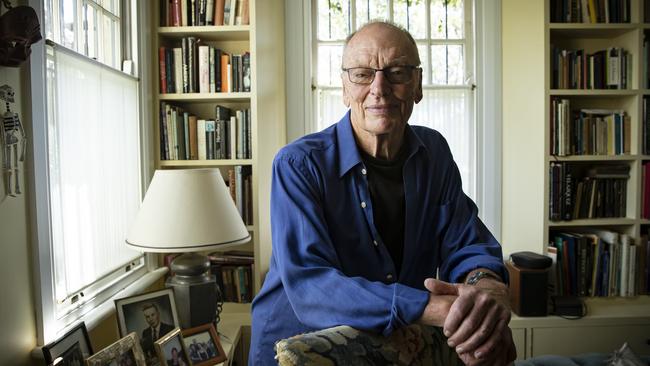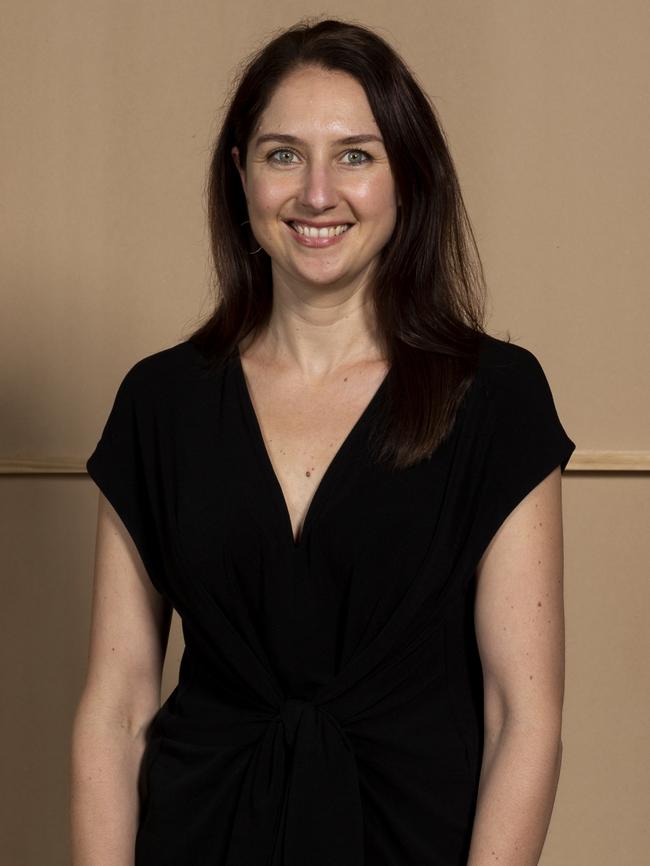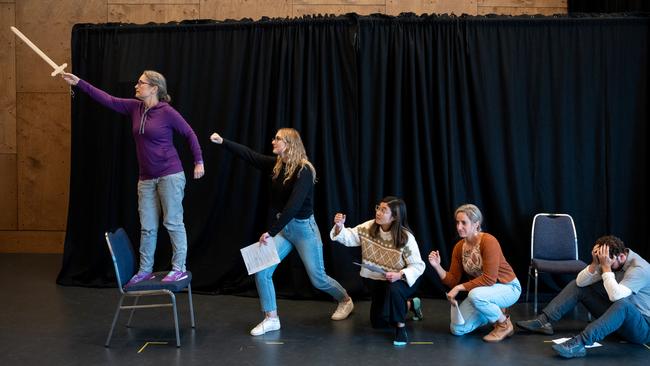How Shakespeare is re-energising educators and lifting retention in the middle of a teacher crisis
William Shakespeare is having a dramatic effect on Australia’s teaching crisis, improving retention rates, job satisfaction and overall learning.
Education
Don't miss out on the headlines from Education. Followed categories will be added to My News.
More than 400 years after his death, William Shakespeare is playing a role in addressing Australia’s teacher crisis.
Following its success in nurturing teachers from regional and remote schools around the country, national theatre company Bell Shakespeare expanded its Regional Teacher Mentorship Program to accept nominations from all Australian schools.
Initially focused on enhancing Shakespearean teaching skills, this fully funded year-long initiative, supported by Teachers Mutual Bank, has notably improved teacher retention rates, job satisfaction, and overall school learning, Bell Shakespeare head of education Joanna Erskine said.
“We are Australia’s national theatre company specialising in Shakespeare productions … but unique to Bell Shakespeare is our education program, which has been core for the company since day one,” Ms Erskine said.
She said the company’s founder John Bell credits two teachers for transforming his life when growing up in the regional NSW town of Maitland.
“He wouldn’t be John Bell without those teachers so he always made sure that education was just core to the company and what we do.”

With Shakespeare varying in presence across Australian school curriculums, the mentorship program breathes new life into teaching approaches, fostering a dynamic engagement with the literature.
The program commences with four days of immersive training in Sydney, encouraging educators to embrace a playful learning mindset.
Throughout the year, participants receive ongoing support, mentorship from artists, and opportunities to implement innovative teaching practices in their schools, fostering a supportive network.
“By the end of the year, they’ve really transformed their practice and had real change implemented in their schools and helped invigorate the whole school community,” Ms Erskine said.

She said each year, teachers expressed the program’s transformative impact.
“We know there’s a crisis in teaching,” she said.
“They’re burnt out, they’re leaving the profession, they’re over scrutinised, not valued enough and so to just be celebrated in this way, a lot of teachers, when they finish the program with us in Sydney, they say, you know I was about to quit teaching, but I’m just remembering why I teach.
“We had one teacher from Broken Hill High School who said he went back to school after the week in Sydney, and his students said to him, ‘what’s wrong with you Sir, you can’t stop smiling?’

Teachers Mutual Bank chief marketing officer Nichole Banks said their organisation was committed to providing ongoing funded to ensure the program continued.
“Teachers are doing it tough at the moment [and they] don’t get a lot of support, they don’t get a lot of professional development,” Ms Banks said.

“We’re seeing teachers leaving the profession at rates we haven’t seen for a long, long time. So the commitment to continue to support teachers, not to just stay, but to develop and grow and continue their love of teaching is critically important to who we [at TMB] are.

“We support a number of programs but I do think this is probably the most unique and interesting because it brings teachers back to being students again, but not just in a typical classroom setting.
“It’s very much about learning very different skills that they can take back to those communities. So, for us, it’s critically important that we’re continuing to support teachers in building capability and capacity in their roles as teachers, but also just to make sure that we are retaining great teachers across Australia.”
Celebrating inspirational and impactful teachers across Australia. Follow the series and nominate.





